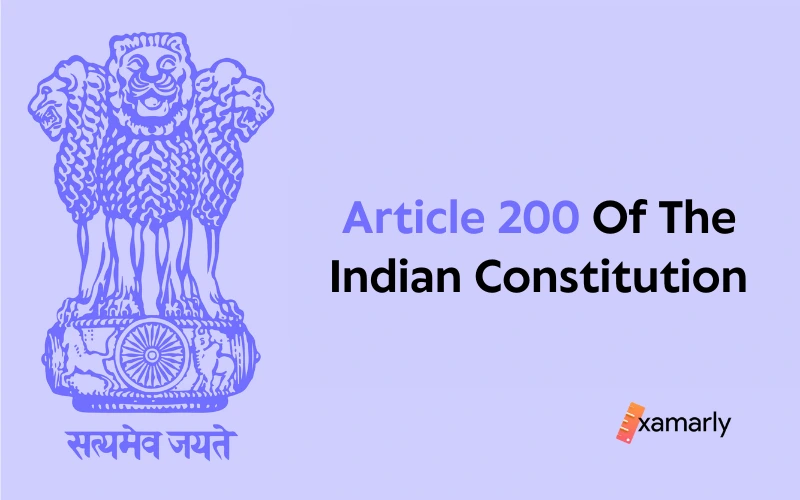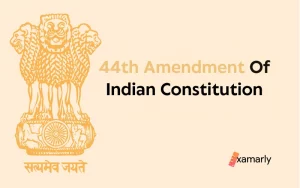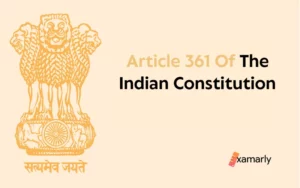An Overview
Article 200 of the Indian Constitution is an important provision that gives the Governor of a State the power to reserve certain Bills passed by the Legislature of a State for the consideration of the President of India. The President can then either give their assent to the bill or return it for reconsideration by the state legislature, with or without recommendations.
This article plays a crucial role in the lawmaking process in India, as it provides a mechanism for the President to review and consider bills that may have significant implications for the country as a whole, or that may raise important constitutional or legal issues.
In this article, we will explore the provisions of Article 200 in greater detail, including the circumstances under which a Bill may be reserved for the President’s consideration, the role of the President in reviewing and deciding on reserved Bills, and the significance of this article in the broader context of the Indian Constitution.
Read along to familiarise yourself with this article of the Indian Constitution and facilitate your preparation strategy by sticking until the very end.
- An Overview
- Article 200 Of The Indian Constitution: Related To The Approval Of Bills
- Explanation Of Article 200 of The Indian Constitution
- Summing Up
- FAQs Related To Article 200 Of The Indian Constitution
- Does Article 200 Of The Indian Constitution Contain Any Clauses Or Sub-clauses?
- What Is The Procedure For Reserving A Bill Under Article 200 Of The Indian Constitution?
- Can The President Return A Bill Reserved Under Article 200 For Reconsideration By The Legislature Of A State?
- Can The President Direct The Governor To Reconsider A Bill Reserved Under Article 200?
- Is The Governor Required To Give His Or Her Assent To A Bill Reserved Under Article 200 If The President Has Given His Or Her Assent?
- What Is Meany By A Bicameral Legislature?
Article 200 Of The Indian Constitution: Related To The Approval Of Bills
The following paragraphs in this heading have been quoted from the official document of the Constitution of India. The given text is contained in the form of Article 200 of the Indian Constitution. It is not divided into clauses or sub-clauses. It reads as follows:
When a Bill has been passed by the Legislative Assembly of a State or, in the case of a State having a Legislative Council, has been passed by both Houses of the Legislature of the State, it shall be presented to the Governor and the Governor shall declare either that he assents to the Bill or that he withholds assent therefrom or that he reserves the Bill for the consideration of the President:
Provided that the Governor may, as soon as possible after the presentation to him of the Bill for assent, return the Bill if it is not a Money Bill together with a message requesting that the House or Houses will reconsider the Bill or any specified provisions thereof and, in particular, will consider the desirability of introducing any such amendments as he may recommend in his message and, when a Bill is so returned, the House or Houses shall reconsider the Bill accordingly, and if the Bill is passed again by the House or Houses with or without amendment and presented to the Governor for assent, the Governor shall not withhold assent therefrom:
Provided further that the Governor shall not assent to, but shall reserve for the consideration of the President, any Bill which in the opinion of the Governor would, if it became law, so derogate from the powers of the High Court as to endanger the position which that Court is by this Constitution designed to fill.
Explanation Of Article 200 of The Indian Constitution
Let us now try to look at Article 200 closely to understand the purpose of the article and the provision it holds concerning the approval of Bills.
Let us consider that a Bill has been approved by the Legislative Assembly of a State or, it has been approved by both Houses of the Legislature of the State in the case of a State having a Legislative Council, that is a Bicameral Legislature. The procedure for assent to Bills will follow as mentioned in the article. The course of action after the approval will be to present the approved Bill to the Governor of the State. It is then the responsibility of the Governor to either declare that he approves of the Bill, or that he has decided to withhold his assent from the Bill, or that he chooses to reserve the Bill for the consideration of the President.
Further, the article states that the Governor may return a Bill that is not a Money Bill to the Legislature of a State for reconsideration. A Money Bill is a Bill that relates solely to the appropriation of money from the Consolidated Fund of the State. This can be done as soon as the Governor receives the bill for assent.
When returning the bill, the Governor can send a message to the Legislature of the State requesting them to reconsider the bill or any specified provisions of the Bill, and to consider any alterations to the bill that the Governor may suggest. When a Bill is returned in this way, the Legislature of the State is required to take the Bill into consideration and, if it is passed again, the Governor must give their assent to the bill.
Lastly, the article states that the Governor may reserve any Bill for the consideration of the President if, in the opinion of the Governor, the Bill would undermine the powers of the High Court if it became law. It would hamper the authority of the High Court in such a way as to endanger the role that the Court is intended to play in the Constitution. This means that if the Governor believes that a Bill passed by the Legislature of a State would significantly reduce the powers or authority of the High Court, or would otherwise compromise the ability of the High Court to fulfil its constitutional responsibilities, the Governor may choose to reserve the bill for the consideration of the President.
To put it very simply, Article 200 gives the Governor four alternatives when the Legislature of a State passes a Bill. The Governor may either approve the Bill or reject it. He may also choose to pass on the Bill to the President for reviewing or he may send the Bill back the State Legislature for reconsideration.
We can say that the provisions under Article 200 of the Indian Constitution allows the Governor to have a say in the lawmaking process of the State and to ensure that the laws passed by the Legislature of a State are consistent with the broader interests of the state and the nation.
Summing Up
To recapitulate, we learnt that Article 200 of the Indian Constitution gives the Governor of a State the power to reserve certain bills passed by the State Legislature for the consideration of the President of India. This provision is intended to give the President an opportunity to review and consider Bills that may have significant implications for the country as a whole, or that may raise important constitutional or legal issues.
Under this article, the Governor may reserve a Bill for the President’s consideration by sending the Bill, along with a message explaining the reasons for reserving the Bill, to the President for review. The President may then return the Bill for reconsideration by the Legislature of a State, or give his or her assent to the Bill, as the case may be.
In this way, Article 200 serves as an important check on the powers of the Legislatures of the States and helps to ensure that the laws passed by them are consistent with the broader interests of the nation.
You Might Also Like:
| Article 199 Of The Indian Constitution | Article 197 Of The Indian Constitution |
| Article 198 Of The Indian Constitution | Article 196 Of The Indian Constitution |
FAQs Related To Article 200 Of The Indian Constitution
Does Article 200 Of The Indian Constitution Contain Any Clauses Or Sub-clauses?
No, Article 200 of the Indian Constitution does not have any clauses or sub-clauses.
What Is The Procedure For Reserving A Bill Under Article 200 Of The Indian Constitution?
According to the Constitution, if the Governor of a State is of the opinion that a Bill passed by the Legislature of a State should be reserved for the consideration of the President, he or she may do so by sending the Bill, along with a message explaining the reasons for reserving the bill, to the President for consideration.
Can The President Return A Bill Reserved Under Article 200 For Reconsideration By The Legislature Of A State?
Yes, the President can return a bill reserved under Article 200 of the Indian Constitution for reconsideration by the Legislature of a State, with or without any recommendations. If the President returns the Bill with recommendations, the State Legislature must consider the recommendations before re-passing the Bill.
Can The President Direct The Governor To Reconsider A Bill Reserved Under Article 200?
Yes, the President can direct the Governor to reconsider a Bill reserved under Article 200. In such a case, the Governor must reconsider the Bill and take a fresh decision on whether to give his approval to the Bill or to reserve it for the consideration of the President.
Is The Governor Required To Give His Or Her Assent To A Bill Reserved Under Article 200 If The President Has Given His Or Her Assent?
Yes, if the President gives his or her assent to a Bill reserved under Article 200 of the Indian Constitution, the Governor is required to give his or her assent to the Bill as well. The Governor has no discretion in this matter and must give his or her assent to the Bill in accordance with the decision of the President.
What Is Meany By A Bicameral Legislature?
A Bicameral Legislature is a legislative body that is comprised of two Houses. Both the lower and upper Houses of the Legislature of a State that is bicameral share the responsibility for the administration and execution of the laws in equal measure.






